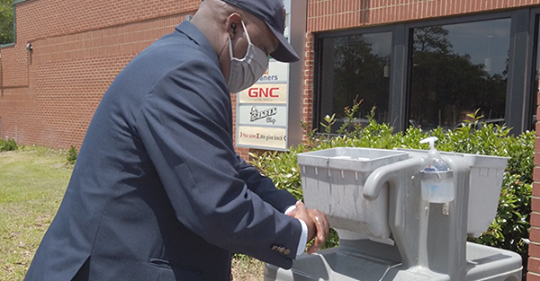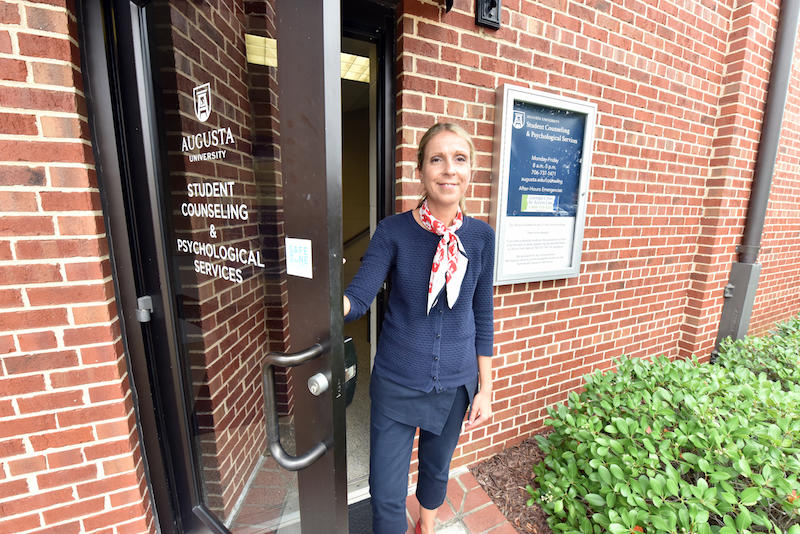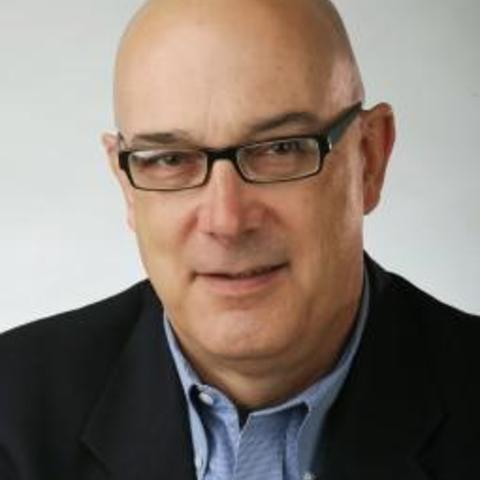Section Branding
Header Content
'COVID Fatigue': Are Folks Slacking Off In The Fight?
Primary Content
Tired of wearing a mask in public places? Do you ever forget to take one along when you go out?
Are you weary of social distancing with friends and family members?
Is your hand-washing getting less frequent and a little less thorough?
These may be signs that weariness with COVID-19 guidelines is setting in.
This “COVID fatigue’’ is a natural response to four months of unprecedented social restrictions, experts say.
But such fatigue — if it leads to careless behavior — is potentially dangerous, the experts say, and may at least partially be responsible for the spikes in new cases in Georgia and many other states.
Georgia’s number of new COVID-19 cases is breaking daily records for the state. Hospitalizations are up, too. Many other states are in the same unsettling position, with rising numbers of infections reported daily. That has led some governors to reimpose restrictions on gatherings.
Wearing a mask in public has become a symbol for safe practices – and political leaders are making a push to promote face coverings.
U.S. House Minority Leader Kevin McCarthy (R-Calif.) said Tuesday that wearing masks is “the best opportunity for us to keep this economy open” and agreed with a Fox News host that it would be a “powerful symbol” if President Trump would don one in public, the Washington Post reported. Trump has declined to wear a mask himself, saying people should consider public health advice and make their own choices.
McCarthy’s comments on “Fox & Friends” come as a growing number of Republicans are advocating wearing masks in public, as the number of coronavirus cases climbs in many states.
In Georgia, Gov. Brian Kemp is launching a tour of Georgia cities to promote the wearing of masks.
Some Georgians are ignoring safety guidelines altogether. Many others are simply slipping — absent-mindedly lowering their masks in public places or forgetting about social distancing when they run into people they know. Experts say both trends are helping drive the recent COVID-19 surge.
The Public Health director for the Savannah district, Dr. Lawton Davis, told the Savannah Morning News that he’s concerned about the increasing percentage of Georgians testing positive for the virus.
“I think there’s several reasons for that,’’ Davis told the newspaper. “No. 1, people are tired of wearing face masks, particularly when it’s hot outside. And they’re tired of staying at home and want to get on with their lives.’’
The reopening of economies may have given many people a false sense of security. Self-isolating at home has given way to trips to the grocery store and restaurants and, for some, social gatherings without proper distancing.
Dr. Anthony Fauci, the nation’s top infectious disease expert, this week admonished people who have abandoned safety measures. He said an “all or none” approach to precautions has contributed to a new surge of COVID-19.
“What has happened, I guess understandably, but nonetheless regrettably, [is] that people took the attitude in some places of either all or none. Either you’re locked down, or you just let it fly and you just ignore many of the guidelines,” Fauci told CNN in an interview that aired Monday.
He also said, “Even in states that are telling their citizens to do it correctly, . . . there are crowds. They are not physical distancing, and they’re not wearing masks. That’s a recipe for disaster.” Fauci reiterated that safe measures include social distancing, mask-wearing, abstaining from shaking hands and avoiding large crowds.
Some level of fatigue with COVID restrictions is normal, experts say.
“We’ve been in this for four months,’’ notes Elena Petrova, director of Student Counseling & Psychological Services at Augusta University. Early on, there was hope for a quick end to the pandemic. “I felt we were all sprinting,’’ Petrova says. But this pandemic is more of a marathon, she adds.
“Giving up comforts for a long period of time is not natural for us,’’ she adds. “This kind of behavior change has been difficult.’’
Looser behavior on safety guidelines is likely feeding the rise in new infections, Petrova says. “It’s important to remind ourselves that we can’t fully relax. All of us want to.’’
Young, active, infected
The jump in new infections has skewed toward younger adults. An AJC analysis shows adults under 30 make up the fastest-growing group of new infections.
The University of Georgia, in fact, confirmed Monday that nearly 150 students and campus workers have tested positive for COVID-19.
Because younger people with the virus often feel only mild symptoms or none at all, many may not realize they have it. That allows them to spread it to other people, including those in high-risk medical categories.
Younger people may not know anyone who has been sickened by the virus, and thus may feel that fears about it are overblown, says Dr. Mark Rapaport, chairman of the Department of Psychiatry and Behavioral Sciences at Emory University School of Medicine.
“Unless it has personally affected an individual, it’s natural to have [a level] of denial,’’ he says. “There’s not an understanding that this is somebody’s grandmother or grandfather’’ who could get infected from a younger person.
Individuals getting lax about safety protocols “is absolutely contributing’’ to the rise in cases, Rapaport says. People may say to themselves, “It’s only one time, minimizing the risk they may be having.’’
olitical leaders, top athletes and entertainment stars can have real influence by promoting safe practices, he added.
Jacqueline Gollan, associate professor of psychiatry and behavioral sciences at the Northwestern University Feinberg School of Medicine, has coined the term “caution fatigue.’’
“Whether it’s wearing masks or standing six feet away from people, caution fatigue is low motivation or energy to comply with safety guidelines,’’ she told Northwestern Today. “You could consider caution fatigue to be similar to a AA battery. Initially you may have been energized and positively focused on following pandemic-safety behavior. But as the virus has continued on, you may start to focus on the negative and feel physically or mentally depleted.’’
What can people do to ward off this fatigue?
Connect with a therapist if mental health services are needed, Petrova says. She adds that people should be informed about virus developments, but may need to set boundaries on the intake of news on COVID.
“In this marathon, we can’t just check out. This is a public health issue.’’
Gollan told Northwestern Today, “The things we miss, like playing and exercising, can still be rewarding but need to be redefined to meet pandemic safety guidelines.”
People may want to do something “that maximizes rewards [health] and minimizes your risk [exposure],’’ Gollan said. “Ask yourself, ‘What’s my goal? Can it be delayed? If not, what are the risks of this decision for myself and others?’
“Consider the value of being a good member of collective society, preserving health for yourself and family. It’s value-driven behavior and has an ultimate reward in caring for others and yourself.”
She added, “Make sure you are doing things in your life that give you physical, emotional and spiritual energy. This is an unusual situation and it’s normal to feel upset. If you are feeling depressed, call your doctor for consultation.”
This story comes to GPB through a reporting partnership with Georgia Health News




